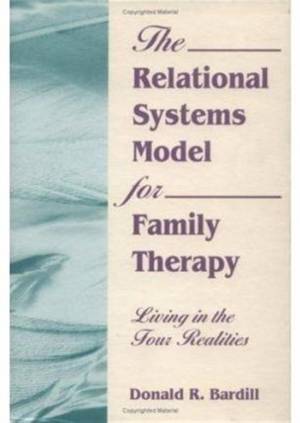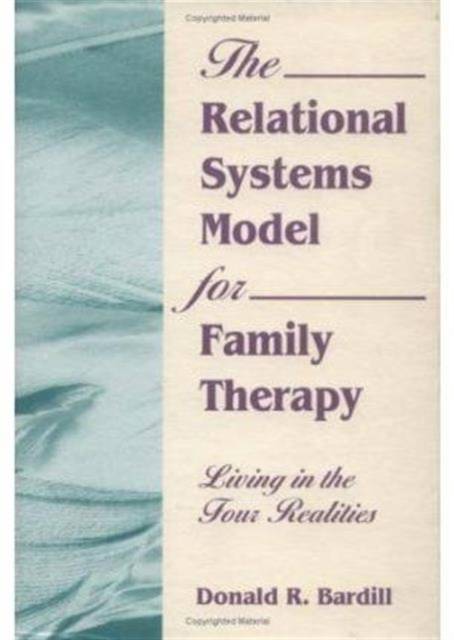
- Retrait gratuit dans votre magasin Club
- 7.000.000 titres dans notre catalogue
- Payer en toute sécurité
- Toujours un magasin près de chez vous
- Retrait gratuit dans votre magasin Club
- 7.000.0000 titres dans notre catalogue
- Payer en toute sécurité
- Toujours un magasin près de chez vous
The Relational Systems Model for Family Therapy
Living in the Four Realities
Carlton Munson, D Ray BardillDescription
The Relational Systems Model for Family Therapy presents a multi-systems approach to family therapy that teaches the therapist important self-differentiating capacities that set the tone for creating a powerful therapeutic atmosphere. While the model demands no specific treatment procedures, it does rely on the therapist's capacity to adhere to its basic ideas, as she/he is the most vital factor in the model's success.In The Relational Systems Model for Family Therapy, Author Donald R. Bardill encourages the therapist to be the learning vehicle for the integration of the four realities of life (self, other, context, spiritual) and the differentiating process that is necessary for human survival, safety, and growth. Understanding this model allows therapists to lead clients to heightened self-awareness and the realization of their human potential--both important factors for intellectual growth, emotional maturity, and problem solving. To this end, readers learn about:
- the self-differentiating therapist--the person-of-the-therapist is the crucial variable in an effective family treatment process
- the facing process--the client faces such issues as self-identity, life-purpose, thought and behavior patterns, emotionalized fears, and the future
- emotionalized right/wrong--focus is on consequences of actions rather than right/wrong judgments in relationship issues
- life stances--the uniqueness of the individual affects their connection to the life realities
- family grid--a way for the therapist to organize and talk about important family systems dynamics
- the therapeutic paradox--the client's worldview is examined through the therapist's worldview and a new worldview is formedThe Relational Systems Model for Family Therapy is an important handbook for practitioners and students in the fields of clinical social work, psychology, marriage and family therapy, mental health counseling, counseling psychology, pastoral counseling, and psychiatric nursing. The book is also useful as a supplemental text for advanced undergraduate classes and postgraduate seminars in family therapy and family counseling. The self-differentiation nature of the content also lends this book useful to self-help readers.
Spécifications
Parties prenantes
- Auteur(s) :
- Editeur:
Contenu
- Nombre de pages :
- 288
- Langue:
- Anglais
- Collection :
Caractéristiques
- EAN:
- 9780789000743
- Date de parution :
- 05-12-96
- Format:
- Livre relié
- Format numérique:
- Genaaid
- Dimensions :
- 157 mm x 229 mm
- Poids :
- 453 g

Les avis
Nous publions uniquement les avis qui respectent les conditions requises. Consultez nos conditions pour les avis.






